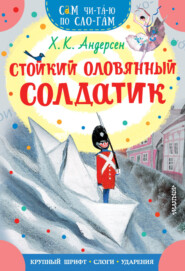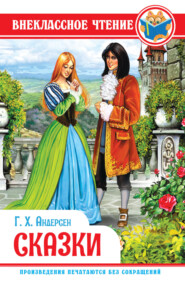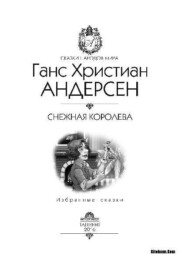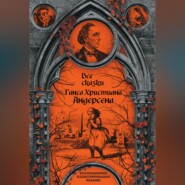По всем вопросам обращайтесь на: info@litportal.ru
(©) 2003-2024.
✖
O. T., A Danish Romance
Настройки чтения
Размер шрифта
Высота строк
Поля
“How do you find yourself, Thostrup?” he inquired. “We are still friends as before?” and he wished to give his hand. Otto drew back his. “I have done nothing which could so much offend you,” said Wilhelm; “the whole was merely a joke! Give me your hand, and we will speak no more of the affair!”
“To the man whom I hate, I never reach my hand,” replied Otto and his lips were white like his cheeks.
“A second time to-day you speak these words to me,” said Wilhelm, and the blood rushed to his face. “We were friends, wherefore cannot we be so still? Have people slandered me to you? Have they told lies about me? Only tell me faithfully, and I shall be able to defend myself.”
“You must fight with me!” said Otto; and his glance became more gloomy. Wilhelm was silent; there reigned a momentary stillness. Otto suppressed a deep sigh. At length Wilhelm broke silence, and said, with a grave and agitated voice,—“I am so thoughtless, I joke so often, and regard everything from the ridiculous side. But for all that I have both heart and feeling. You must have known how much dearer you were to me than most other people. You are so still, although you offend me. At this moment your blood is in a fever; not now, but after a few days, you yourself will best see which of us is the offended party. You demand that I fight with you; I will if your honor requires this satisfaction: but you must lay before me an acceptable reason. I will know wherefore we risk our lives. Let some days pass by; weigh all with your understanding and your heart! It will still depend upon yourself whether we remain friends as before. Farewell!” And Wilhelm went.
Each of his words had penetrated to Otto’s heart. A moment he stood silent and undecided, then his limbs trembled involuntarily, tears streamed from his eyes—it was a convulsive fit of weeping; he pressed his head back. “God, how unfortunate I am!” were his only words.
So passed some minutes; he had ceased to weep, and was calm; suddenly he sprang up, shot the bolt in the door, drew down the blinds, lighted his candle, and once more looked searchingly around: the key-hole was also stopped up. He then flung his coat away from him and uncovered the upper part of his body.
CHAPTER VII
“The towers pass by, even before we perceive them.”
OEHLENSCHLÄER’S Journey to Fünen.
Early the following morning, whilst Wilhelm still slept and dreamed of his beloved sisters, well-known footsteps sounded on the stairs, the door opened, and Otto stepped into the sleeping-room. Wilhelm opened his eyes. Otto was pale; a sleepless night and sorrow of heart had breathed upon his brow and eyes.
“Thostrup!” cried Wilhelm, with joyous surprise, and stretched forth his hand toward him, but it again sank; Otto seized it, and pressed it firmly in his own, adding at the same time, with gravity,—“You have humbled me! Is that sufficient satisfaction for you?”
“We are then friends!” said Wilhelm. “Friends must be very indulgent toward each other. Yesterday you were a little strange, to-morrow I may be so; that is the way in which one retaliates.”
Otto pressed his hand. “We will never speak again of the occurrence of yesterday!”
“Never!” repeated Wilhelm, affected by the strange gravity of his friend.
“You are a noble, a good creature!” said Otto, and bent over him; his lips touched Wilhelm’s forehead.
Wilhelm seized his hand, and gazed frankly into his eye. “You are not happy!” exclaimed he. “If I cannot assist you, I can, at least, dear Otto, honestly share the grief of a friend!”
“Even on that very point we may never speak!” replied Otto. “Farewell! I have determined on travelling home; we have only vacation for a few weeks, and I have not been in Jutland since I became a student. Even a month’s sojourn there cannot throw me back; I am well prepared for the philosophicum.”
“And when will you set out?” asked Wilhelm.
“To-morrow, with the steamboat. It is hot and sultry here in the city: my blood becomes heated: it will, also, soon be a year since I saw my family.”
“Thostrup!” exclaimed Wilhelm, through whom a thought suddenly flashed, “I should also like to see my family; they have written to me to come. Listen: make your journey through Funen, and only remain three or four days with us. My mother’s carriage shall convey you then to Middelfart. Say ‘Yes,’ and we will set out this evening.”
“That cannot be done!” replied Otto; but half an hour later, as both sat together over the tea-table, and Wilhelm repeated his wish, Otto consented, but certainly more through a feeling of obligation than through any pleasure of his own. Toward evening, therefore, they set out in the beautiful summer night to travel through Zealand.
Smartly dressed families wandered pleasantly through the city gate toward the summer theatre and Fredericksberg. The evening sun shone upon the column of Liberty; the beautiful obelisk, around which stand Wiedewelt’s statues, one of which still weeps,
“In white marble clothing,
Hand upon the breast,
Ever grief-oppressed,
Looking down upon the gloomy sea,”
where were closed the eyes of the artist. Was it the remembrance which here clouded Otto’s glance, as his eye rested upon the statues as they drove past, or did his own soul, perhaps, mirror itself in his eyes?
“Here it is gay and animated!” said Wilhelm, wishing to commence a conversation. “Vesterbro is certainly your most brilliant suburb. It forms a city by itself,—a little state! There upon the hill lies the King’s Castle, and there on the left, between the willows, the poet’s dwelling, where old Rahbek lived with his Kamma!”
“Castle and poet’s dwelling!” repeated Otto; “the time will be when they will inspire equal interest!”
“That old place will soon be pulled down!” said Wilhelm; “in such a beautiful situation, so near the city, a splendid villa will be raised, and nothing more remind one of Philemon and Baucis!”
“The old trees in the park will be spared!” said Otto; “in the garden the flowers will scent the air, and remind one of Kamma’s flowers. Rahbek was no great poet, but he possessed a true poet’s soul, labored faithfully in the great vineyard, and loved flowers as Kamma loved them.”
The friends hail left Fredericksberg behind them. The white walls of the castle glanced through the green boughs; behind Söndermark, the large, wealthy village stretched itself out. The sun had set before they reached the Dam-house, where the wild swans, coming from the ocean, build in the fresh water fake. This is the last point of beauty; nothing but lonely fields, with here and there a cairn, extend to the horizon.
The clear summer’s night attracted their gaze upward; the postilion blew his horn, and the carriage rolled toward the town of Roeskilde, the St. Denis of Denmark, where kings turn to dust; where Hroar’s spring still flows, and its waters mingle with those of Issefjords.
They drove to a public-house to change horses. A young girl conducted the friends into the public room; she lighted the way for them. Her slender figure and her floating gait drew Wilhelm’s attention toward her; his hand touched her shoulder, she sprang aside and fixed her beautiful grave eyes upon him; but their expression became milder, she smiled and colored at the same time.
“You are the sister of little Jonas!” cried Wilhelm, recognizing the young girl he had seen with him at Christmas.
“I must also thank you,” said she, “for your kindness toward the poor boy!” She quickly placed the lights on the table, and left the room with a gentle glance.
“She is beautiful, very beautiful!” exclaimed Wilhelm. “That was really quite a pleasant meeting.”
“Is it then you, Herr Baron, who honor me thus?” cried the host, stepping in—an elderly man with a jovial countenance. “Yes, the Baron will doubtless visit his dear relations in hunch? It is now some little time since you were there.”
“This is our host!” said Wilhelm to Otto. “He and his wife were born upon my parent’s estate.”
“Yes,” said the host, “in my youth I have shot many a snipe and wild duck with the Herr Baron’s father. But Eva should spread the table; the gentlemen will certainly take supper, and a glass of good punch the Herr Baron will certainly not despise, if he is like his blessed father.”
The young girl spread the cloth in an adjoining room.
“She is pretty!” Wilhelm whispered to the old man.
“And just as pious and innocent as she is pretty!” returned he; “and that is saying much, as she is a poor girl, and from Copenhagen. She is of good service to us, and my wife says Eva shall not leave us until she is well married.”
Wilhelm invited the host to join them at a glass. The old man became more animated, and now confided to him, half mysteriously, what made Eva so honorable in the eyes of his wife, and what was, indeed, really very nice of her. “My old woman,” said he, “was in Copenhagen, in search of a waiting-girl. Yes, there are enough to be had, and they are fine girls; but mother has her own thoughts and opinions: she has good eyes—that she has! Now, there came many, and among others Eva; but, good Lord! she was very poorly clad, and she looked feeble and weak, and what service could one get out of her! But she had a good countenance, and the poor girl wept and besought mother to take her, for she was not comfortable at home, and would not remain at Copenhagen. Now, mother knows how to make use of her words: it is unfortunate that she is not at home to-night; how pleased she would have been to see the Herr Baron! Yes, what I would say is, she so twisted her words about, that Eva confessed to her why she wished to leave home. You see the girl is petty; and the young gallant gentlemen of Copenhagen had remarked her smooth face,—and not alone the young, but the old ones also! So an old gentleman—I could easily name him, but that has nothing to do with the affair—a very distinguished man in the city, who has, besides, a wife and children, had said all sorts of things to her parents; and, as eight hundred dollars is a deal of money to poor people, one can excuse them: but Eva wept, and said she would rather spring into the castle-ditch. They represented all sorts of things to the poor girl; she heard of the service out here with us. She wept, kissed my old woman’s hand, and thus came to us; and since then we have had a deal of service from Eva, and joy also!”
Some minutes after Eva stepped in, Otto’s eye rested with a melancholy expression upon the beautiful form: never had he before so gazed upon a woman. Her countenance was extraordinarily fine, her nose and forehead nobly formed, the eyebrows dark, and in the dark-blue eyes lay something pensive, yet happy: one might employ the Homeric expression, “smiling through tears,” to describe this look. She announced that the carriage was ready.
A keen observer would soon have remarked what a change the host’s relation had worked in the two friends. Wilhelm was no longer so free toward poor Eva. Otto, on the contrary, approached her more,—and at their leave-taking they offered her a greater present than they would otherwise have given.
She stood with Otto at the door, and assisted him on with his travelling cloak.
“Preserve your heart pure!” said he, gravely; “that is more than beauty!”
The young girl blushed, and gazed at him with astonishment; in such a manner had no one of his age ever before spoken to her.
“The poor girl!” said Otto; “but I think she is come to good people.”
“She has a strange glance!” said Wilhelm. “Do you know that there is really a certain affinity between you and her? It was to me quite striking.”
“That is a compliment which I cannot accept,” returned Otto, smiling. “Yet, perhaps, I might resemble her.”
“To the man whom I hate, I never reach my hand,” replied Otto and his lips were white like his cheeks.
“A second time to-day you speak these words to me,” said Wilhelm, and the blood rushed to his face. “We were friends, wherefore cannot we be so still? Have people slandered me to you? Have they told lies about me? Only tell me faithfully, and I shall be able to defend myself.”
“You must fight with me!” said Otto; and his glance became more gloomy. Wilhelm was silent; there reigned a momentary stillness. Otto suppressed a deep sigh. At length Wilhelm broke silence, and said, with a grave and agitated voice,—“I am so thoughtless, I joke so often, and regard everything from the ridiculous side. But for all that I have both heart and feeling. You must have known how much dearer you were to me than most other people. You are so still, although you offend me. At this moment your blood is in a fever; not now, but after a few days, you yourself will best see which of us is the offended party. You demand that I fight with you; I will if your honor requires this satisfaction: but you must lay before me an acceptable reason. I will know wherefore we risk our lives. Let some days pass by; weigh all with your understanding and your heart! It will still depend upon yourself whether we remain friends as before. Farewell!” And Wilhelm went.
Each of his words had penetrated to Otto’s heart. A moment he stood silent and undecided, then his limbs trembled involuntarily, tears streamed from his eyes—it was a convulsive fit of weeping; he pressed his head back. “God, how unfortunate I am!” were his only words.
So passed some minutes; he had ceased to weep, and was calm; suddenly he sprang up, shot the bolt in the door, drew down the blinds, lighted his candle, and once more looked searchingly around: the key-hole was also stopped up. He then flung his coat away from him and uncovered the upper part of his body.
CHAPTER VII
“The towers pass by, even before we perceive them.”
OEHLENSCHLÄER’S Journey to Fünen.
Early the following morning, whilst Wilhelm still slept and dreamed of his beloved sisters, well-known footsteps sounded on the stairs, the door opened, and Otto stepped into the sleeping-room. Wilhelm opened his eyes. Otto was pale; a sleepless night and sorrow of heart had breathed upon his brow and eyes.
“Thostrup!” cried Wilhelm, with joyous surprise, and stretched forth his hand toward him, but it again sank; Otto seized it, and pressed it firmly in his own, adding at the same time, with gravity,—“You have humbled me! Is that sufficient satisfaction for you?”
“We are then friends!” said Wilhelm. “Friends must be very indulgent toward each other. Yesterday you were a little strange, to-morrow I may be so; that is the way in which one retaliates.”
Otto pressed his hand. “We will never speak again of the occurrence of yesterday!”
“Never!” repeated Wilhelm, affected by the strange gravity of his friend.
“You are a noble, a good creature!” said Otto, and bent over him; his lips touched Wilhelm’s forehead.
Wilhelm seized his hand, and gazed frankly into his eye. “You are not happy!” exclaimed he. “If I cannot assist you, I can, at least, dear Otto, honestly share the grief of a friend!”
“Even on that very point we may never speak!” replied Otto. “Farewell! I have determined on travelling home; we have only vacation for a few weeks, and I have not been in Jutland since I became a student. Even a month’s sojourn there cannot throw me back; I am well prepared for the philosophicum.”
“And when will you set out?” asked Wilhelm.
“To-morrow, with the steamboat. It is hot and sultry here in the city: my blood becomes heated: it will, also, soon be a year since I saw my family.”
“Thostrup!” exclaimed Wilhelm, through whom a thought suddenly flashed, “I should also like to see my family; they have written to me to come. Listen: make your journey through Funen, and only remain three or four days with us. My mother’s carriage shall convey you then to Middelfart. Say ‘Yes,’ and we will set out this evening.”
“That cannot be done!” replied Otto; but half an hour later, as both sat together over the tea-table, and Wilhelm repeated his wish, Otto consented, but certainly more through a feeling of obligation than through any pleasure of his own. Toward evening, therefore, they set out in the beautiful summer night to travel through Zealand.
Smartly dressed families wandered pleasantly through the city gate toward the summer theatre and Fredericksberg. The evening sun shone upon the column of Liberty; the beautiful obelisk, around which stand Wiedewelt’s statues, one of which still weeps,
“In white marble clothing,
Hand upon the breast,
Ever grief-oppressed,
Looking down upon the gloomy sea,”
where were closed the eyes of the artist. Was it the remembrance which here clouded Otto’s glance, as his eye rested upon the statues as they drove past, or did his own soul, perhaps, mirror itself in his eyes?
“Here it is gay and animated!” said Wilhelm, wishing to commence a conversation. “Vesterbro is certainly your most brilliant suburb. It forms a city by itself,—a little state! There upon the hill lies the King’s Castle, and there on the left, between the willows, the poet’s dwelling, where old Rahbek lived with his Kamma!”
“Castle and poet’s dwelling!” repeated Otto; “the time will be when they will inspire equal interest!”
“That old place will soon be pulled down!” said Wilhelm; “in such a beautiful situation, so near the city, a splendid villa will be raised, and nothing more remind one of Philemon and Baucis!”
“The old trees in the park will be spared!” said Otto; “in the garden the flowers will scent the air, and remind one of Kamma’s flowers. Rahbek was no great poet, but he possessed a true poet’s soul, labored faithfully in the great vineyard, and loved flowers as Kamma loved them.”
The friends hail left Fredericksberg behind them. The white walls of the castle glanced through the green boughs; behind Söndermark, the large, wealthy village stretched itself out. The sun had set before they reached the Dam-house, where the wild swans, coming from the ocean, build in the fresh water fake. This is the last point of beauty; nothing but lonely fields, with here and there a cairn, extend to the horizon.
The clear summer’s night attracted their gaze upward; the postilion blew his horn, and the carriage rolled toward the town of Roeskilde, the St. Denis of Denmark, where kings turn to dust; where Hroar’s spring still flows, and its waters mingle with those of Issefjords.
They drove to a public-house to change horses. A young girl conducted the friends into the public room; she lighted the way for them. Her slender figure and her floating gait drew Wilhelm’s attention toward her; his hand touched her shoulder, she sprang aside and fixed her beautiful grave eyes upon him; but their expression became milder, she smiled and colored at the same time.
“You are the sister of little Jonas!” cried Wilhelm, recognizing the young girl he had seen with him at Christmas.
“I must also thank you,” said she, “for your kindness toward the poor boy!” She quickly placed the lights on the table, and left the room with a gentle glance.
“She is beautiful, very beautiful!” exclaimed Wilhelm. “That was really quite a pleasant meeting.”
“Is it then you, Herr Baron, who honor me thus?” cried the host, stepping in—an elderly man with a jovial countenance. “Yes, the Baron will doubtless visit his dear relations in hunch? It is now some little time since you were there.”
“This is our host!” said Wilhelm to Otto. “He and his wife were born upon my parent’s estate.”
“Yes,” said the host, “in my youth I have shot many a snipe and wild duck with the Herr Baron’s father. But Eva should spread the table; the gentlemen will certainly take supper, and a glass of good punch the Herr Baron will certainly not despise, if he is like his blessed father.”
The young girl spread the cloth in an adjoining room.
“She is pretty!” Wilhelm whispered to the old man.
“And just as pious and innocent as she is pretty!” returned he; “and that is saying much, as she is a poor girl, and from Copenhagen. She is of good service to us, and my wife says Eva shall not leave us until she is well married.”
Wilhelm invited the host to join them at a glass. The old man became more animated, and now confided to him, half mysteriously, what made Eva so honorable in the eyes of his wife, and what was, indeed, really very nice of her. “My old woman,” said he, “was in Copenhagen, in search of a waiting-girl. Yes, there are enough to be had, and they are fine girls; but mother has her own thoughts and opinions: she has good eyes—that she has! Now, there came many, and among others Eva; but, good Lord! she was very poorly clad, and she looked feeble and weak, and what service could one get out of her! But she had a good countenance, and the poor girl wept and besought mother to take her, for she was not comfortable at home, and would not remain at Copenhagen. Now, mother knows how to make use of her words: it is unfortunate that she is not at home to-night; how pleased she would have been to see the Herr Baron! Yes, what I would say is, she so twisted her words about, that Eva confessed to her why she wished to leave home. You see the girl is petty; and the young gallant gentlemen of Copenhagen had remarked her smooth face,—and not alone the young, but the old ones also! So an old gentleman—I could easily name him, but that has nothing to do with the affair—a very distinguished man in the city, who has, besides, a wife and children, had said all sorts of things to her parents; and, as eight hundred dollars is a deal of money to poor people, one can excuse them: but Eva wept, and said she would rather spring into the castle-ditch. They represented all sorts of things to the poor girl; she heard of the service out here with us. She wept, kissed my old woman’s hand, and thus came to us; and since then we have had a deal of service from Eva, and joy also!”
Some minutes after Eva stepped in, Otto’s eye rested with a melancholy expression upon the beautiful form: never had he before so gazed upon a woman. Her countenance was extraordinarily fine, her nose and forehead nobly formed, the eyebrows dark, and in the dark-blue eyes lay something pensive, yet happy: one might employ the Homeric expression, “smiling through tears,” to describe this look. She announced that the carriage was ready.
A keen observer would soon have remarked what a change the host’s relation had worked in the two friends. Wilhelm was no longer so free toward poor Eva. Otto, on the contrary, approached her more,—and at their leave-taking they offered her a greater present than they would otherwise have given.
She stood with Otto at the door, and assisted him on with his travelling cloak.
“Preserve your heart pure!” said he, gravely; “that is more than beauty!”
The young girl blushed, and gazed at him with astonishment; in such a manner had no one of his age ever before spoken to her.
“The poor girl!” said Otto; “but I think she is come to good people.”
“She has a strange glance!” said Wilhelm. “Do you know that there is really a certain affinity between you and her? It was to me quite striking.”
“That is a compliment which I cannot accept,” returned Otto, smiling. “Yet, perhaps, I might resemble her.”

















